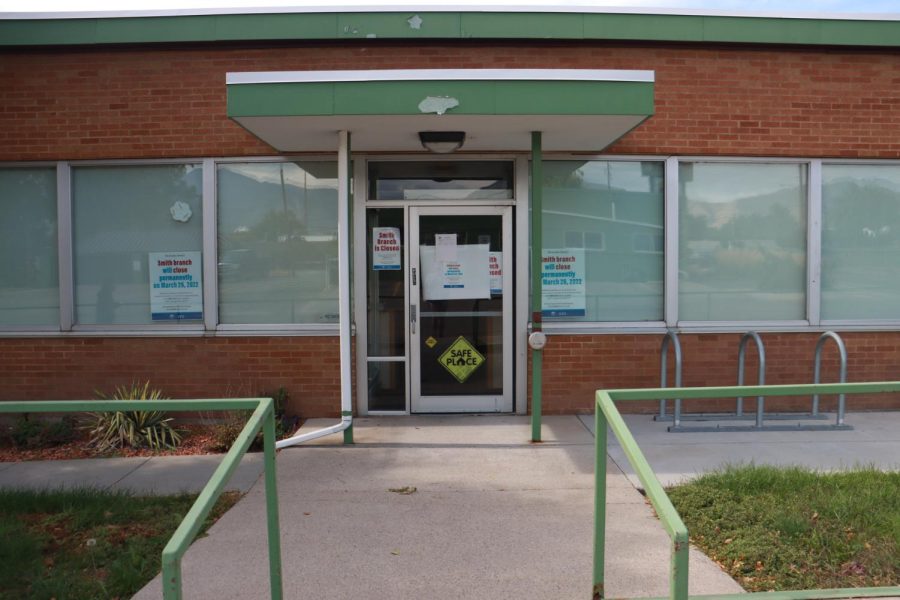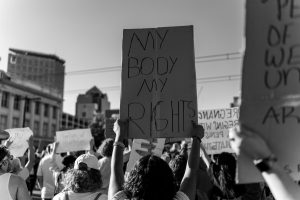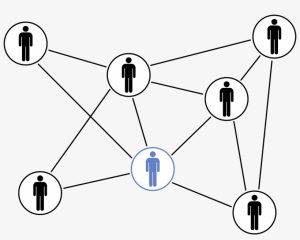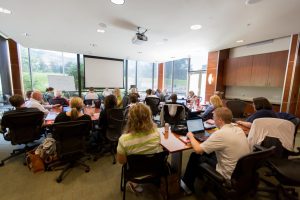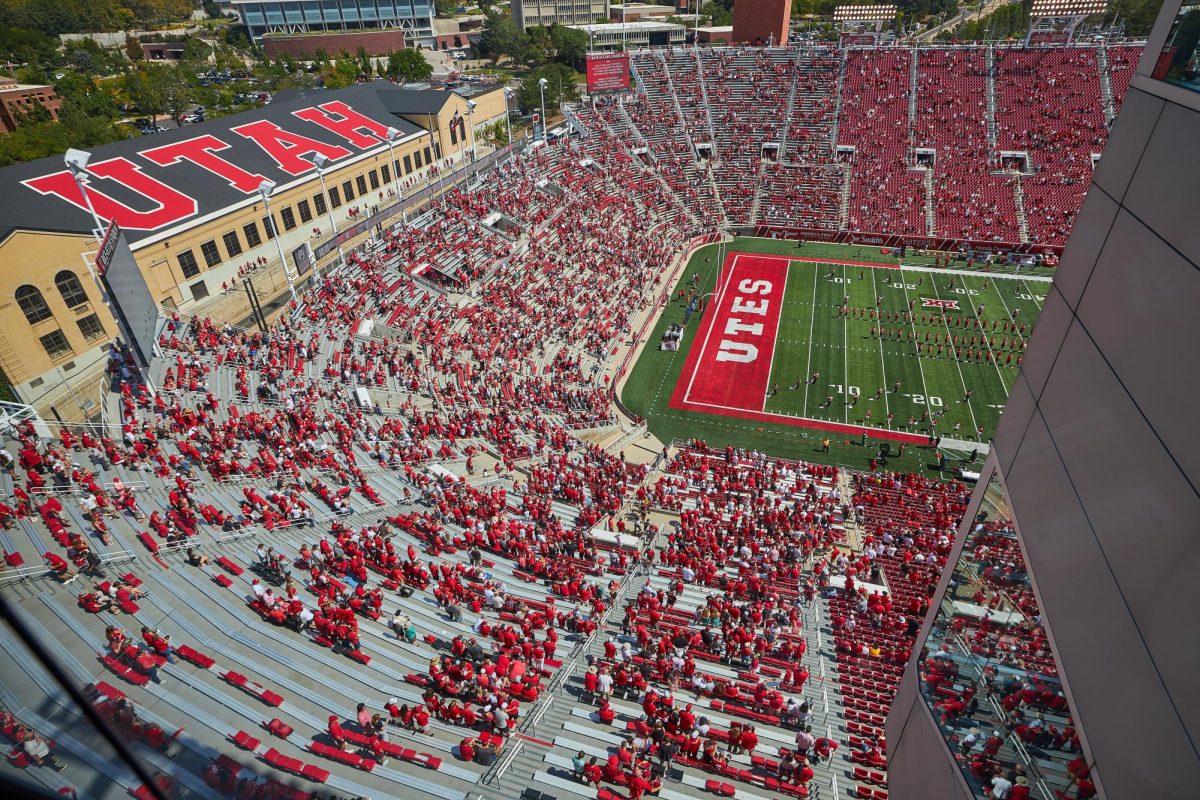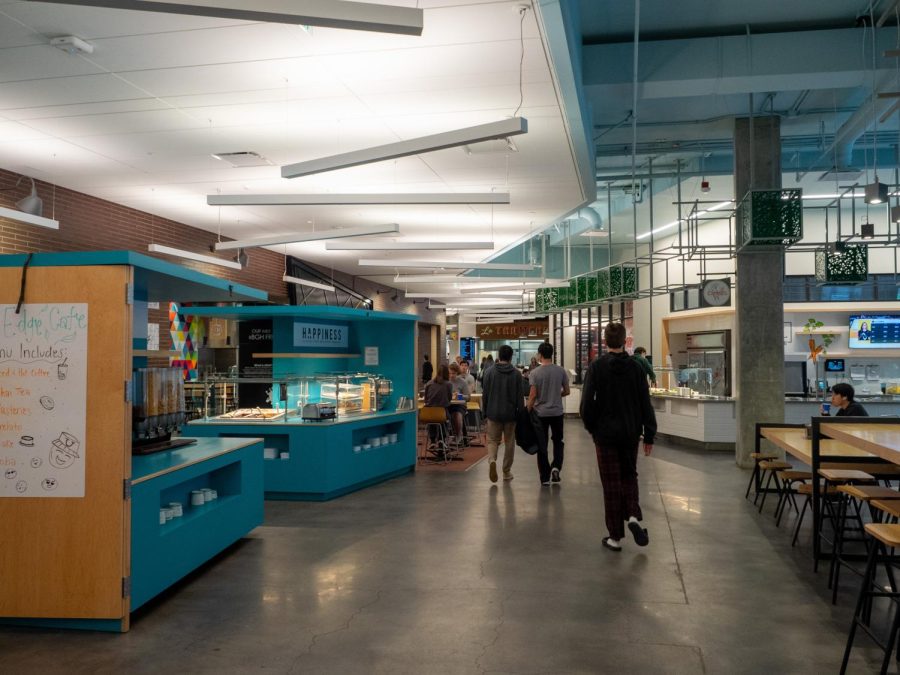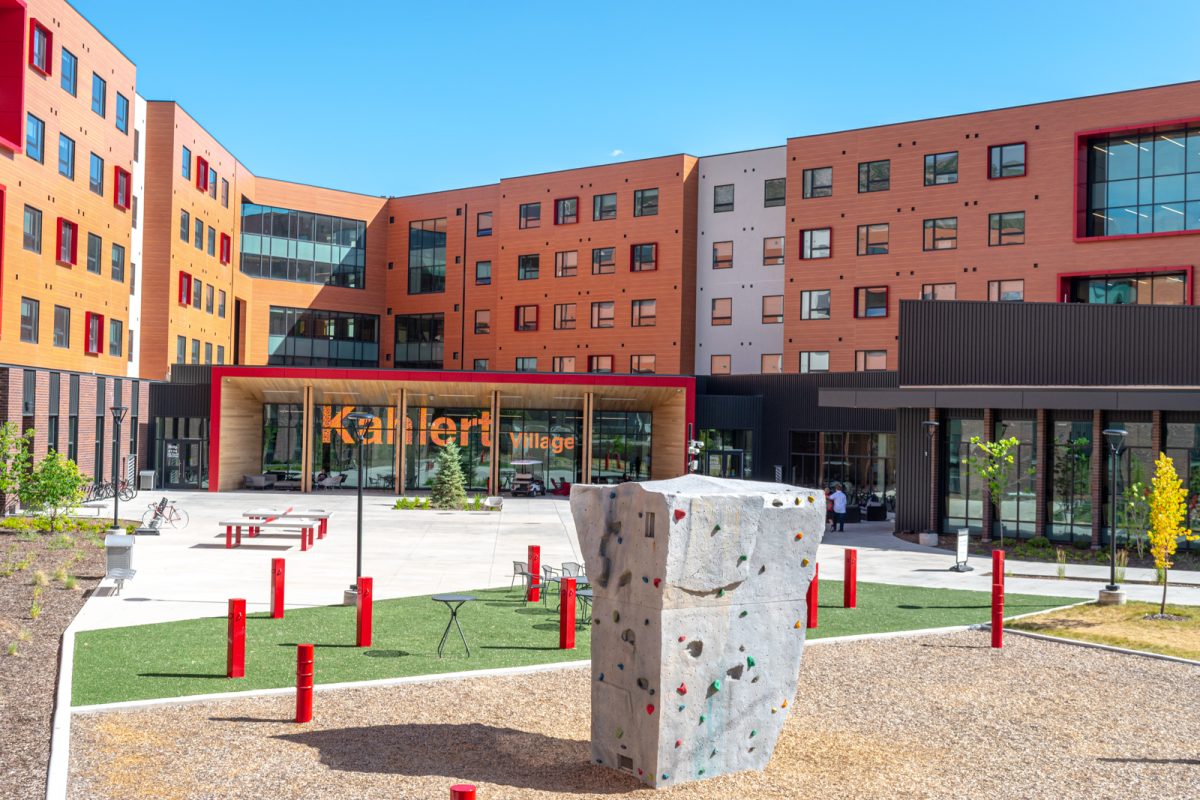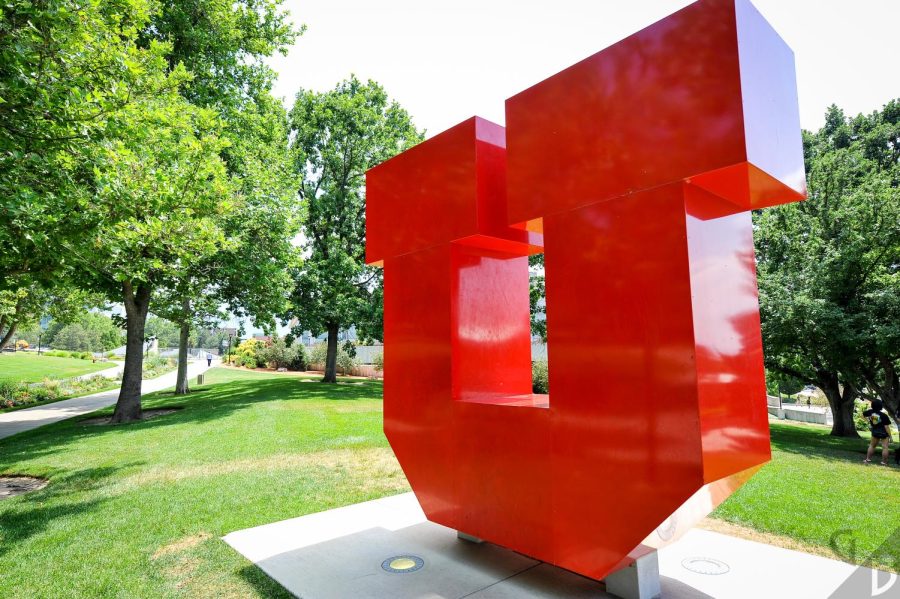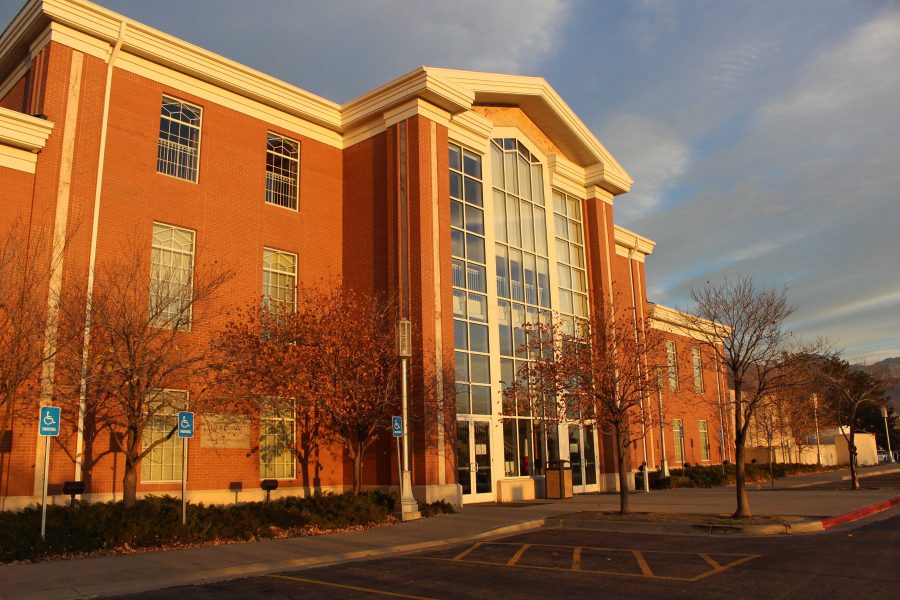Torres: If We Don’t Take Care of Our Unsheltered Neighbors, Who Will?
Side door of the Calvin S. Smith Library with closure signs in Millcreek, Utah on Oct. 2, 2022. The library will be converted to an emergency shelter. (Photo by Sarah Karr | The Daily Utah Chronicle)
October 5, 2022
Pre-pandemic news outlets applauded Utah for its handle on the housing crisis, with chronic homelessness reduced by 91% in 2015. Our previous approach, Housing First, allowed individuals to access housing with fewer requirements of sobriety and mandated treatment. But in 2019, the state forced The Road Home, Utah’s largest shelter, to close its doors. Following this decision, they reported a not-so startling increase in the need for shelters.
Then, the COVID-19 pandemic left the community even more vulnerable. Unemployment and health disparities forced people into the housing crisis — shifting previously declining levels of homelessness back up. Gentrification and encampment sweeps have further dehumanized Utah’s unsheltered population. And on top of their existing conditions, unsheltered individuals have to endure dangerous heat waves and winter storms.
Despite this painful reality, Utahns neglect their responsibility in the housing crisis by pushing against emergency aid, dehumanizing unsheltered people and failing to implement permanent solutions.
Millcreek Resident Pushback
Two winters ago, Salt Lake’s shelters were regularly at 97% capacity. And despite promising more permanent changes in the winter of 2020, Salt Lake City Mayor Erin Mendenhall has only just begun to deliver on her promises.
This winter, Millcreek will house the now yearly emergency overflow shelter, but some residents oppose the move. Millcreek Mayor Jeff Silvestrini hopes residents will understand their role, saying “To get at the underlying source of it, we have to all be working together and Millcreek needs to be partnering with other communities.”
Residents have expressed a range of concerns about the shelter, which will be located in the old building of the Calvin S. Smith Library. Because the city already owns the building, its $500,000 in funds can go primarily to improving the shelter.
One Millcreek resident expressed concern over drug use, prostitution and vagrants. Others turned to online message boards, commenting, “All of the naive commenters preaching about altruism in the community are overlooking the negative consequences of concentrating 100+ homeless folks in a suburban neighborhood, nearby an elementary school no less, with no real proximity to transport.”
This dehumanizing language villainizes addicts, sex workers and people experiencing homelessness. It makes assumptions about and promotes cruel attitudes towards them. “We’re all wanting safe neighborhoods but so do the people experiencing homelessness,” explains state homeless coordinator Wayne Niederhauser.
Over-Policing the Unsheltered
This isn’t the only behavior that demonizes housing crisis victims. With its state funds, the shelter has budgeted for four things: additional police funding for overnight patrols, screen fences and barriers, additional streetlights surrounding the shelter and services to “keep the city clean” of debris, hazardous waste and encampments. They are also exploring diverting funding to give residents private security cameras.
Like other shelters, Millcreek’s will ship occupants in at night and back in the morning. They will not provide food and the city will contract a private non-profit, Switchpoint, to run the shelter. “There will be staffers from the shelter operator, on site of the facility, there’ll be one person for every 20 residents. So probably about five of them. And in addition to that, they’ll have their own security,” explains Mayor Silvestrini.
Emergency shelters are still at a deficit to find beds for the winter. Shelters already struggle to find staffing, stresses Directer Niederhauser. While Salt Lake City is piloting a program that deploys social workers with firefighters on mental health calls, the emergency shelter will use patrols to stop encampments around the area.
Instead of giving financial aid directly to unsheltered people through medical services and food, funds are funneled into policing them out of the safe places they desperately need. Unhoused people shouldn’t have to jump through hoops to avoid frostbite and heatstroke.
We Need Permanent Solutions
The emergency overflow shelter is important and necessary. As a Millcreek resident who lives a few blocks away from the planned location, I am glad to see the city step up for the needs of my unsheltered neighbors. But Utah has hosted emergency overflow shelters every year since the shutdown of The Road Home, and it’s time to find a permanent solution.
Many Utahns wonder where they should go to demand aid for the unsheltered. “It’s the local homeless councils, municipalities and counties that have primary responsibility. So from a state standpoint, our role is to support the local entities,” explains Director Niederhauser.
Legislator solutions continue to misunderstand the needs of tenants. Proposed dormitory-style communal housing prioritizes landlord profit over resident quality of living. Gentrification on the West side of the valley is already displacing residents, and the cost of living is reaching new heights.
While we await the effects of new tiny homes, Utah residents can still show empathy for their unsheltered neighbors. Local organizations like Wasatch Tenants fight for the most vulnerable in the housing crisis. Little things go a long way, too. Formerly unhoused people have provided suggestions for what people can do to help. One is simply to have conversations with them, listening with respect and dignity — something all Utahns can do regardless of their financial or time constraints. If you do have the money, “packs made up of things like deodorant, toothpaste, toothbrushes, socks, gloves and all that are important (and they really are) but don’t forget sanitary products like pads and tampons,” explains a previously unhoused commenter.
State entities can receive funding if residents ask for it. Director Niederhauser clarifies the role of residents: “We need support and in many ways like in reaching out to your legislators, to your city council members to express concerns about homelessness. Because we need some policy changes, we need a budget to address it efficiently.”
The responsibility of caring for our unsheltered neighbors falls on all our shoulders. While the city council debates budgets for fences and streetlights, real people are on the streets in crisis. The unhoused population of Utah cannot wait for another election season to receive the accommodations they desperately need.


